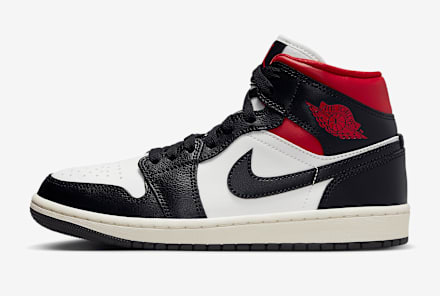Advertisement
Millennials Are Settling Down Later Than Ever. But What Kind Of Impact Is That Having On Their Mental Health?

In 2018, a lot more thought goes into marriage than it did 50 years ago. In 1970, the average age to get married in the United States was 20.8 for women and 23 for men, but that number has climbed considerably in recent decades—it's now 27.4 for women and 29.5 for men.
The reasoning behind hitting the brakes on marriage varies. While paying off student debt and wanting to get ahead in their careers before settling down are valid reasons many millennials cite, they also seem to be placing a higher premium on getting to know themselves and their partners: According to a recent eHarmony report, members of couples in the United States between the ages of 25 and 34 knew each other for an average of 6.5 years before getting married, compared to an average of five years in other age groups.
The point, it seems, is to avoid divorce. "People are not postponing marriage because they care about marriage less but because they care about marriage more," Benjamin Karney, a professor of social psychology at the University of California, Los Angeles, told the New York Times.
While these seem like smart, well-thought-out decisions, could partnering up later in life come with negative mental health consequences? Here's what the experts have to say.
Marriage and our loneliness crisis.
Thanks to the rise of technology, there's no question that we're facing a loneliness crisis. And because waiting longer to settle down could result in more years of living alone, there's some concern that saving marriage for later in life could result in an uptick in loneliness.
But according to Nathalie C. Theodore, LCSW, when it comes to loneliness, not having a romantic partner is neither here nor there.
"Regardless of marital status, we all need a solid support system to combat loneliness," she explains. "So whether or not you’re in a committed relationship, it’s important to spend time nurturing your friendships so that you're not relying on just one person to fulfill all of your needs."

The mental health benefits (and consequences) of waiting longer to get married.
One huge benefit of waiting longer to get married? You'll spend more time getting to know yourself. "I'd say that knowing yourself as an adult before finding a partner may ultimately help you choose the right partner," explains Alison Stone, LCSW. "Fully understanding who you are as a person—what your needs and values are, what makes you tick, how you operate best in relationships, what partnership means to you—can be a really useful tool in selecting a healthy partner."
She adds that because most of us experience periods of growth and changes to our identity in our 20s, we're often drawn to very different types of people at 20 versus 28—and by our late 20s, we're a lot more likely to make better-informed decisions about who we spend our lives with.
On the flip side, Theodore points out that waiting longer to get married can cause a unique kind of stress. "Waiting to get married may cause anxiety or depression for those who are eager to tie the knot and haven't found the right person yet, or who are in a committed relationship with someone who wants to wait," she explains.
Delaying marriage and the divorce rate.
Stone believes that while delaying marriage will likely lead to a decline in the divorce rate, it's important that people are delaying it for the right reasons. "It will lead to a decline in the divorce rate if getting married later in life means people have taken more time to select the 'right' partner, are more self-aware and in tune with their needs, and are making better long-term choices for themselves," she explains. "Yet while there will always be trends, marriage and divorce rates are impacted by such a wide variety of factors—including variations in economic status, race, geographic location—that I imagine it's hard to measure that with full accuracy."
Interested in trends surrounding marriage and divorce? Here's what science has to say about whether or not divorce is genetic.
Watch Next
Enjoy some of our favorite clips from classes
Enjoy some of our favorite clips from classes
What Is Meditation?
Mindfulness/Spirituality | Light Watkins
Box Breathing
Mindfulness/Spirituality | Gwen Dittmar
What Breathwork Can Address
Mindfulness/Spirituality | Gwen Dittmar
The 8 Limbs of Yoga - What is Asana?
Yoga | Caley Alyssa
Two Standing Postures to Open Up Tight Hips
Yoga | Caley Alyssa
How Plants Can Optimize Athletic Performance
Nutrition | Rich Roll
What to Eat Before a Workout
Nutrition | Rich Roll
How Ayurveda Helps Us Navigate Modern Life
Nutrition | Sahara Rose
Messages About Love & Relationships
Love & Relationships | Esther Perel
Love Languages
Love & Relationships | Esther Perel












